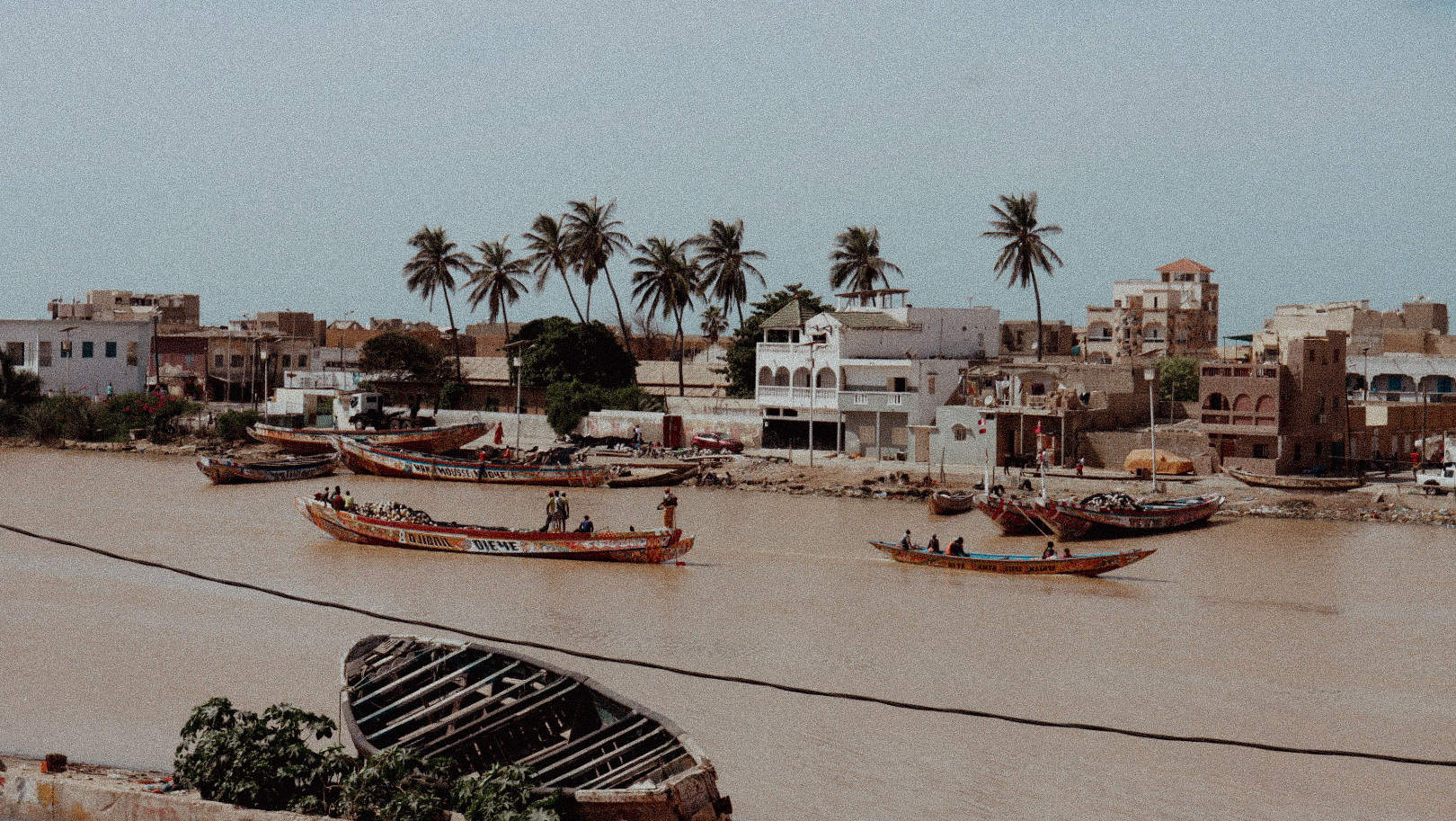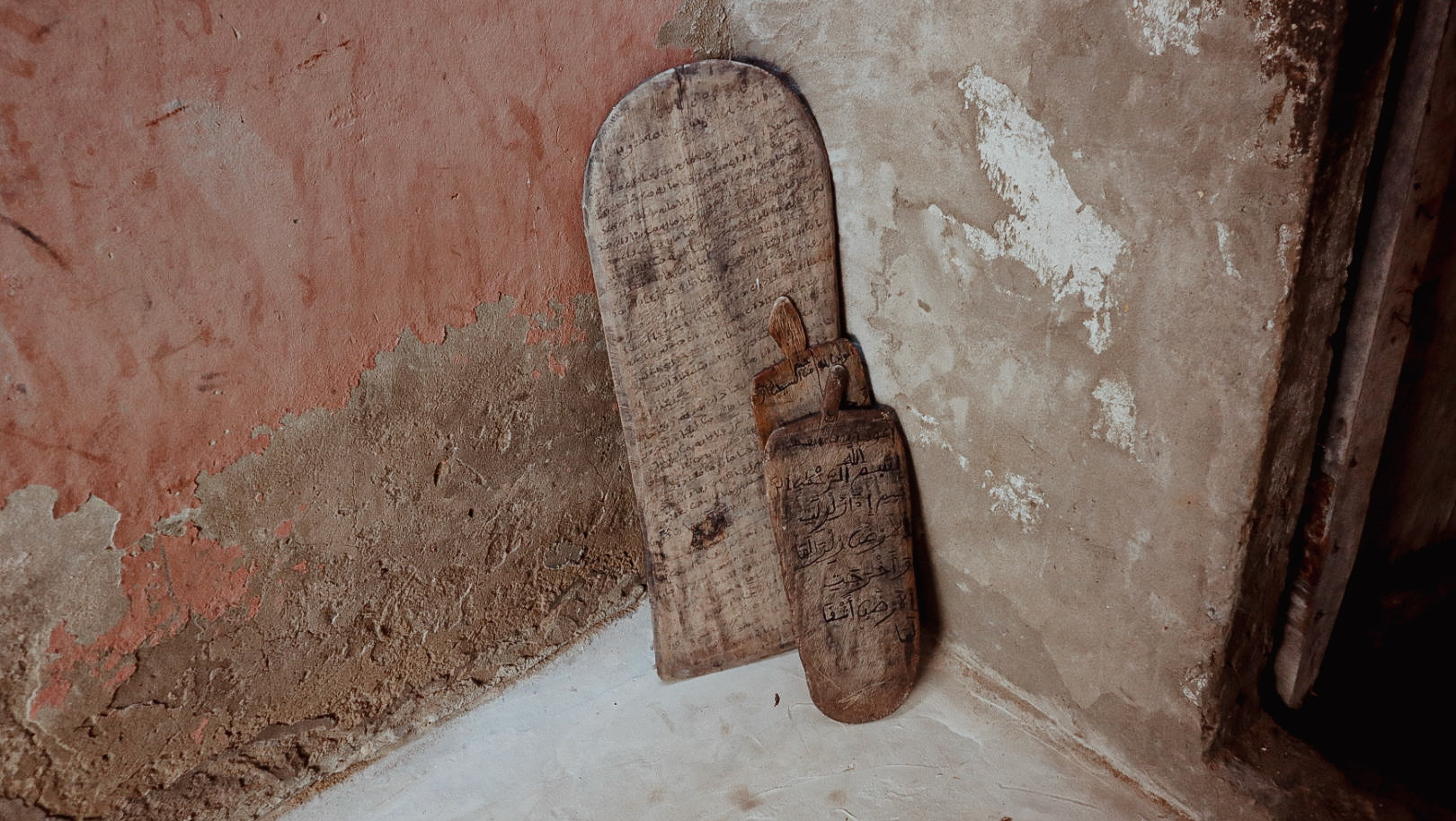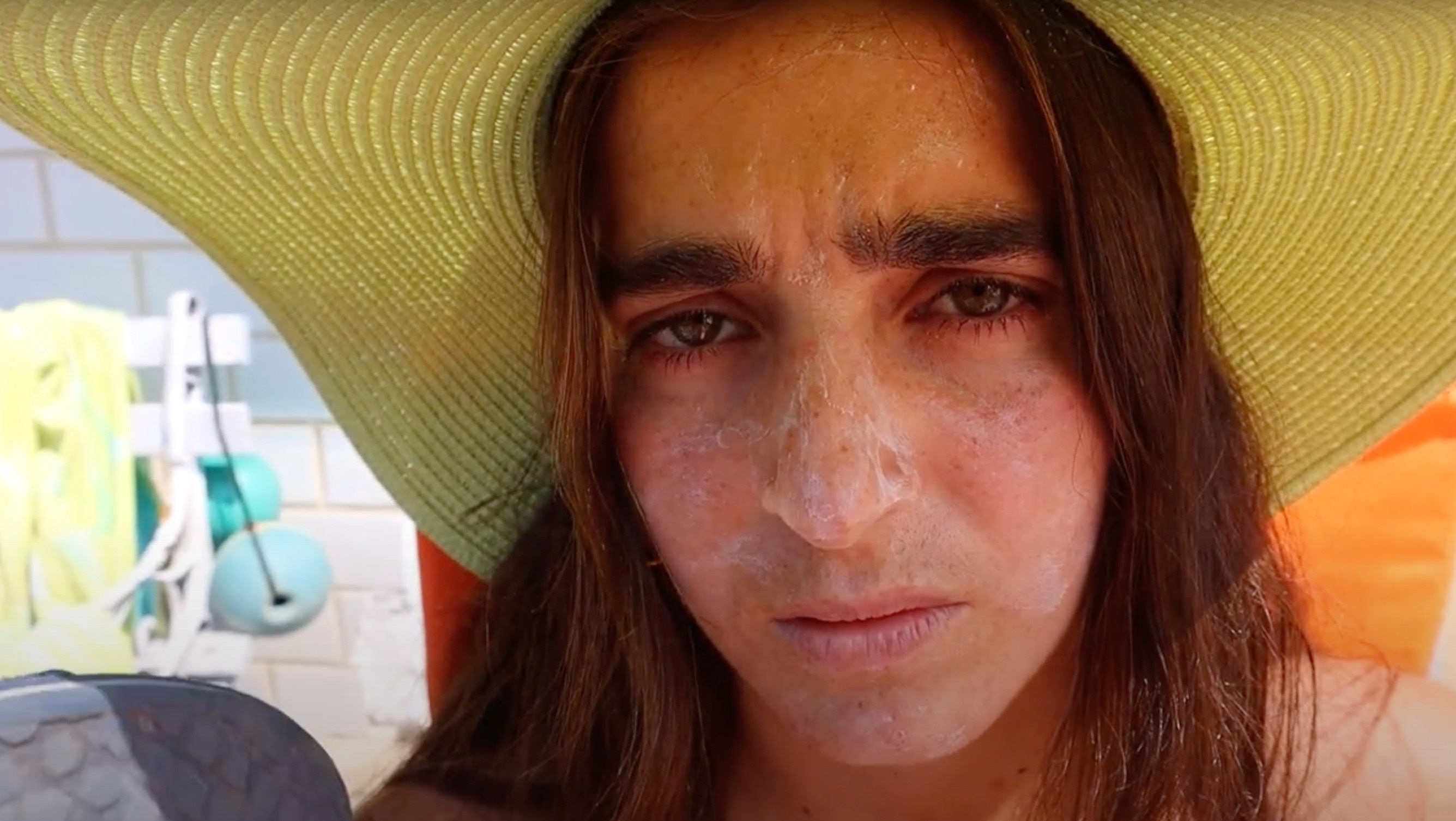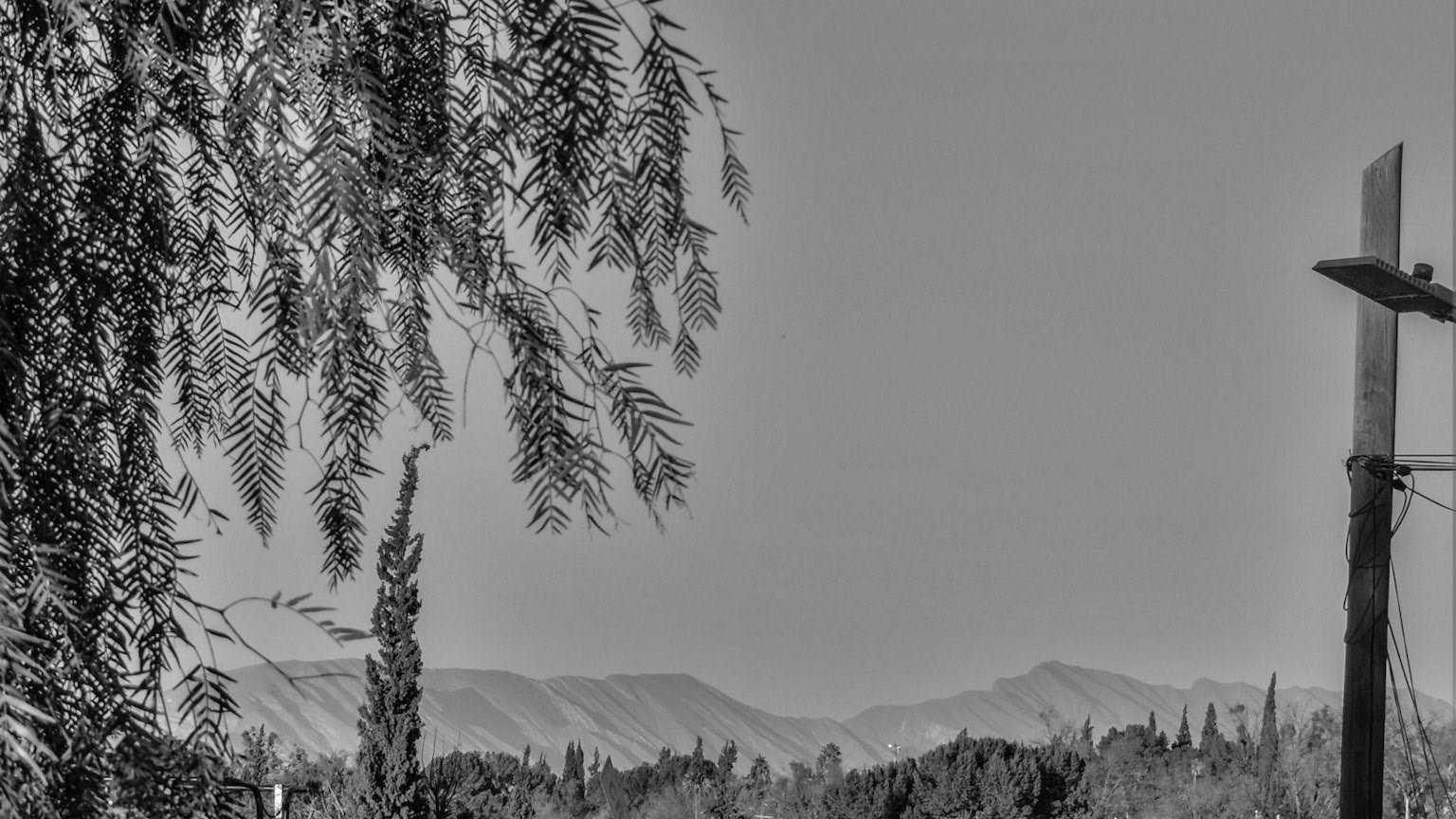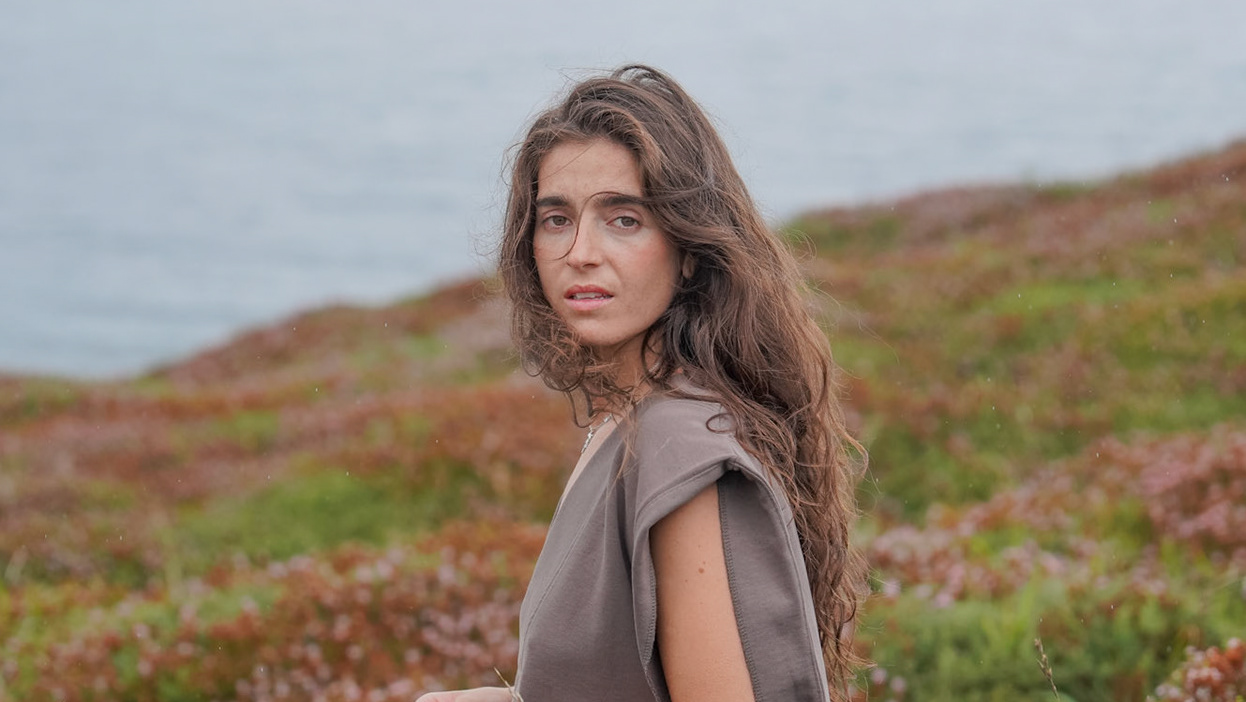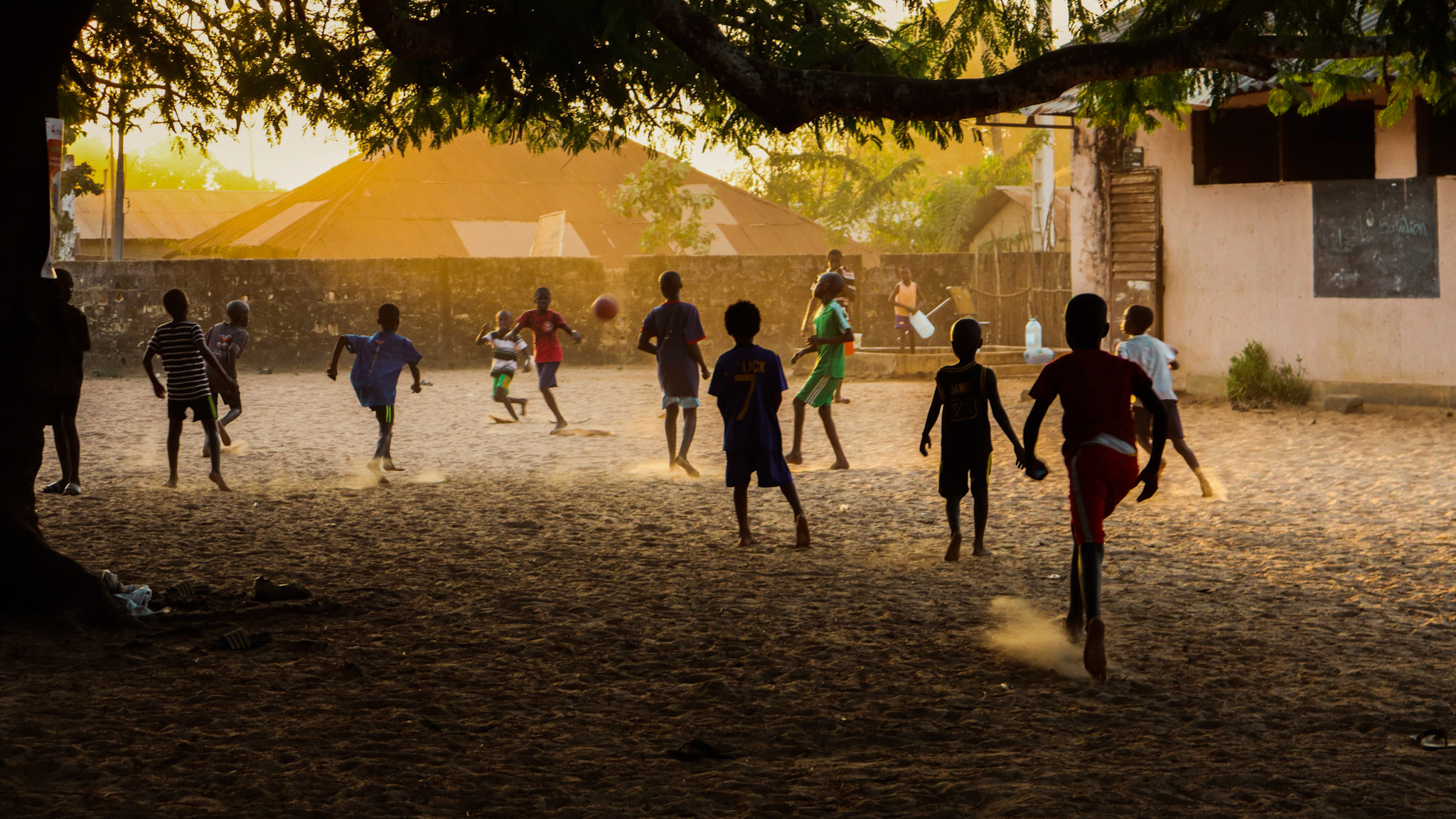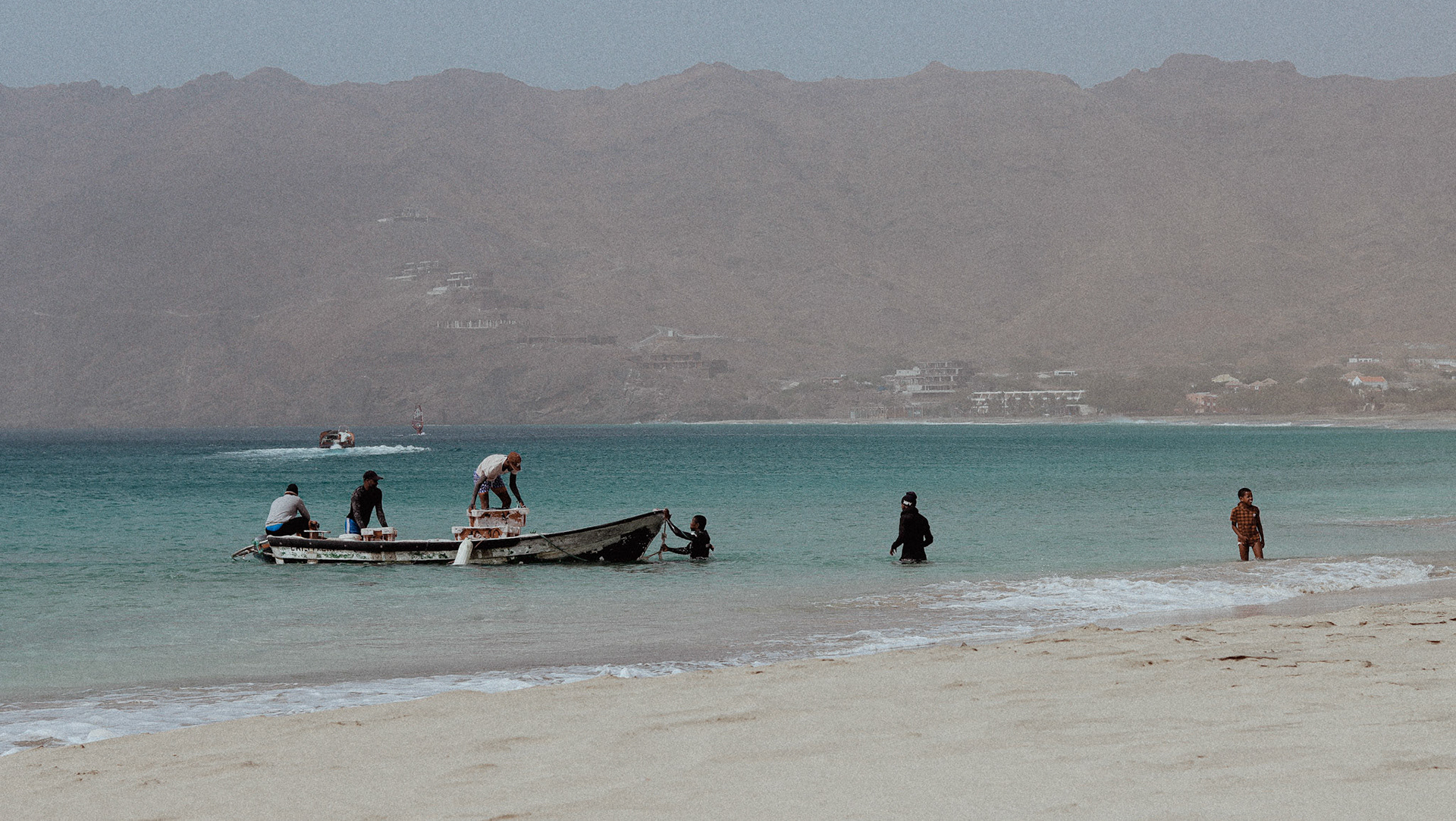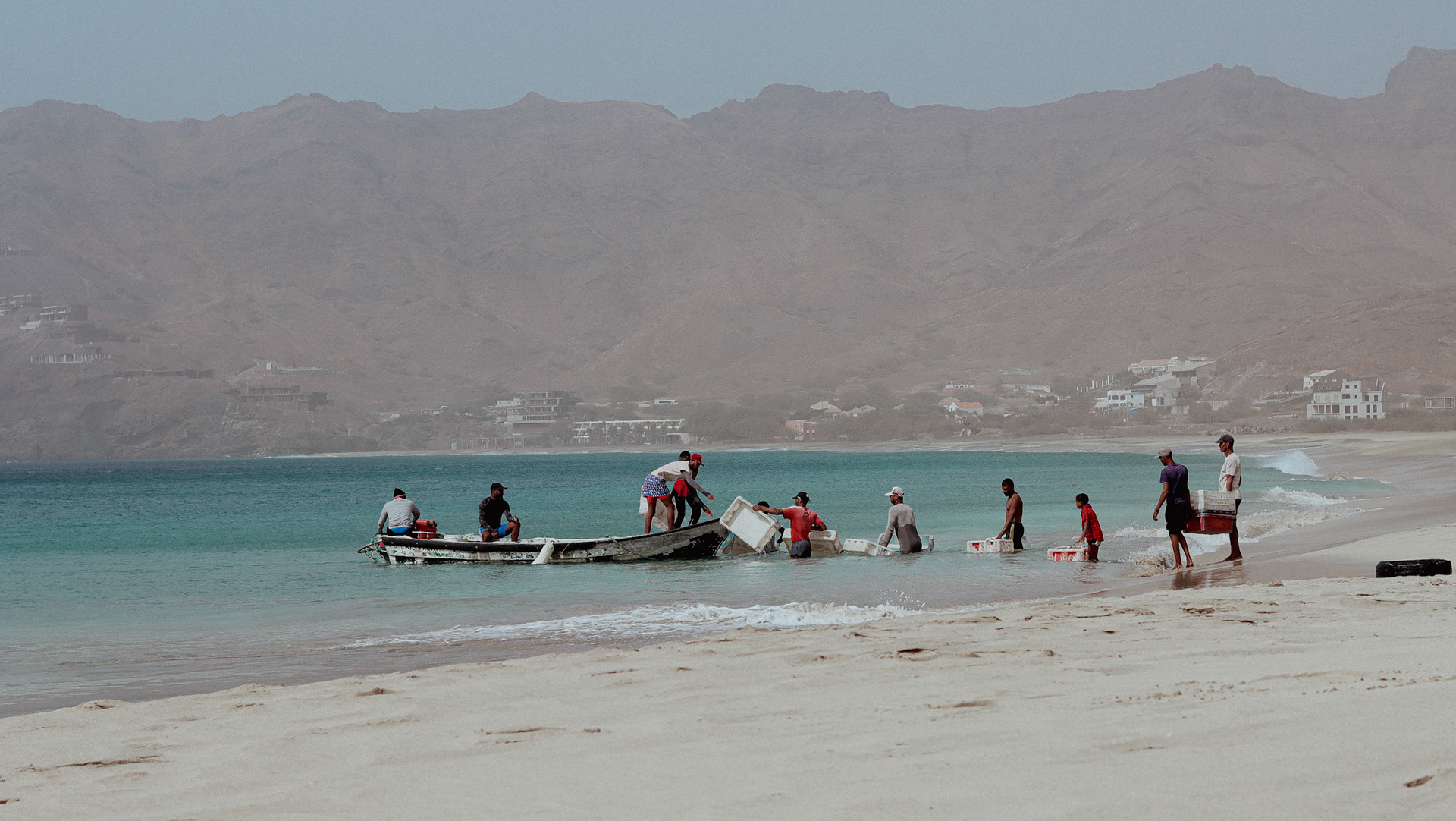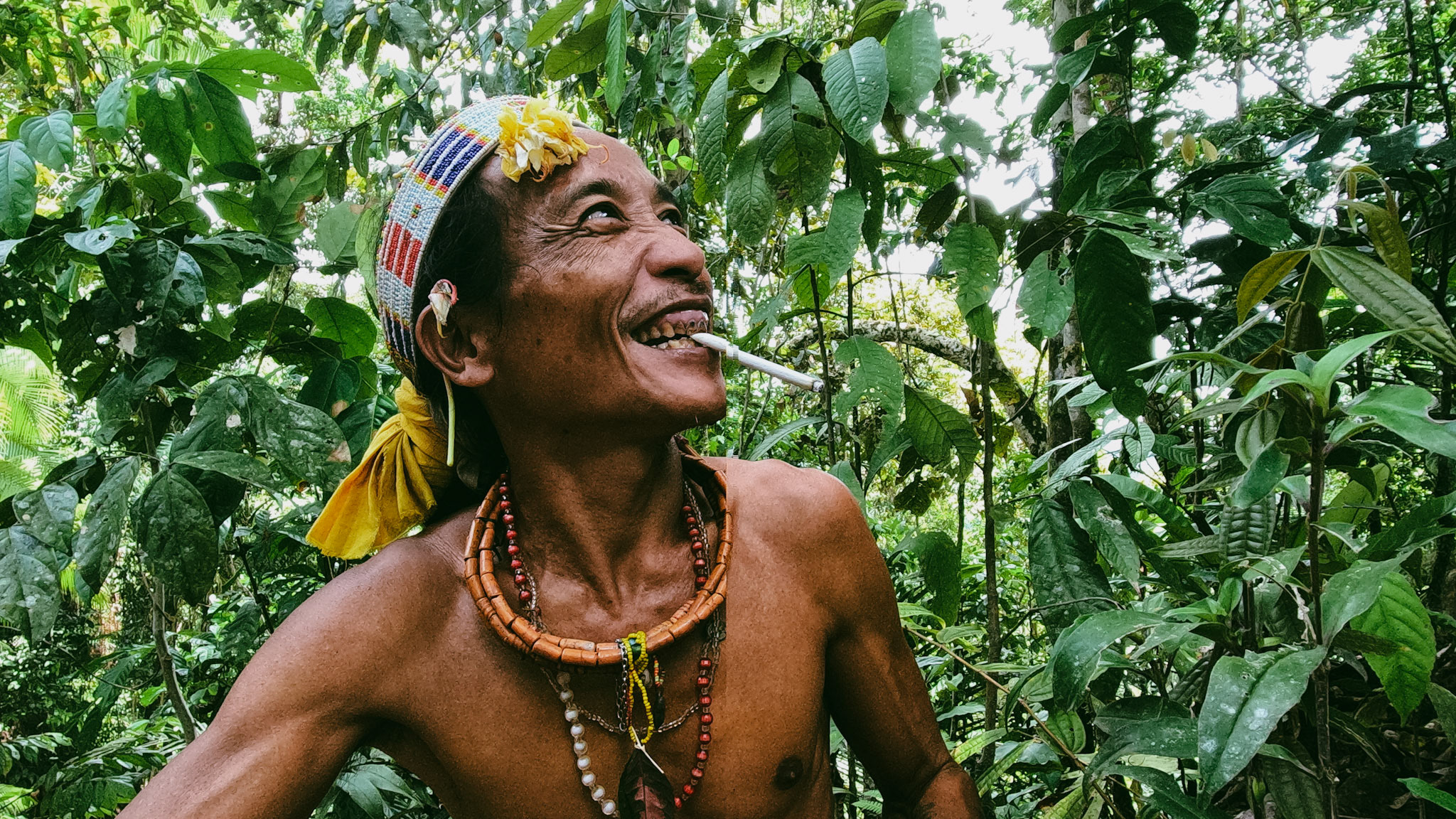MAMADOU AND HIS RASTAFARI LIFESTYLE
mamadou INFRONT OF HIS HOUSE
"Being Rasta is not just about wearing Rastas, listening to reggae and playing the djembe. Rastafari is in the heart, It's being positive, being honest."
Before hitting my way up to the city of Saint Louis, in the north of Senegal, I decided to make a stop on Ngor island, in Dakar.
Arriving without accommodation, I met Mamadou, who wanted to welcome me in his home. Mamadou is from a region in the south of Senegal, called Casamance.
Arriving without accommodation, I met Mamadou, who wanted to welcome me in his home. Mamadou is from a region in the south of Senegal, called Casamance.
Although he has been living on the island for almost 10 years, he left home to earn a living, as his family is dedicated to the cultivation of land, especially rice.
In Casamance, the religions are Islam, Christianity and Animism and the majority ethnic group is the Diola, unlike the rest of Senegal, which is Wolof.
On this island he has found a corner of peace, away from the hustle and bustle of the city, which reminds him of home and allows him to undergo his life as an artist, simple, minimalist and without unnecessary luxuries. He lives in the half-built house of a French man in exchange of looking after it when he is not there. At the entrance of the house, he has all his creations on display for sale.
Mamadou is an animist, an artist and lives in close connection with nature. The days that we spent together we chatted about all kinds of topics while drinking tea around the fire. He told me that he is very proud to be from Casamance, to be Rastafarian and above all, to be African.
Mamadou dresses with the fabrics of his region, wears his father's sacred necklaces and his mother's bracelets. He smokes natural weed from his village, he cleans his teeth with a special wooden stick, and he treats his rats with karite oil brought from his village. In addition, he is always with his radio, as music is very important for him.
AMADOU AND HIS SHOE SHINING BUSINESS
AMADOU IN HIS FRONTFOOR, DRYING THE SHOES HE HAS JUST CLEANED
Amadou was my neighbor while I was living in St. Louis and I decided to do a little story on him while he was working one morning.
Amadou has been shining shoes for 10 years. He started in the city of Dakar where he mainly cleaned children's shoes. Before that, he was a fisherman in several countries such as Gabon, Gambia or Guinea. He combines this job with selling coffee and his career as an artist (he plays several instruments such as the djembe). "This is my job, and I love it. I've always loved working, since I was very little, I don't like to stay at home all day doing nothing."
Amadou gets up every day at 4 am and prays at the mosque across the street from his house, as religion plays a fundamental role in his life. His workplace is the corner of his house, where he cleans shoes surrounded by the people of the neighborhood. He is well known for his work in the whole area so there are days when he can clean about 30 pairs, although each pair does not take him more than 5 minutes. After cleaning them all, he goes back to his house, where he has a small inner courtyard and where he hangs the laces of each of the shoes to dry.
abene´s midwife
Upon arriving at the town of Abene, I was greeted by my friend Sidou. Sidou took me to his "Grande famille" house to meet all his family members. We arrived at a house with an open interior patio and in the corners, several women were resting lying in the floor.
These women were his cousins, his aunt and his grandmother. Several children were also playing around the house. They invited me to sit with them on the floor. The matriarch of the family began to speak to me in Mandinga (local language) in a loving way, thanking me for the visit.
The matriarch was a very stylish woman with a penetrating gaze. It caught my attention that she was wearing a turban made of the same fabric as her dress. Her daughter and granddaughter told me that their grandmother had dedicated her life to being a midwife. When there was no electricity in the town and there was no hospital, she was the only one who did this work in her own home.
According to them, she had a gift, she knew perfectly well when a woman was going to give birth just by looking at her or touching her belly. It took women just 30 minutes to give birth with her. I asked her how she did to avoid the pain, she answered that she used natural African remedies and that she simply talked to Allah.
Years later, when they opened the Abene hospital, she began to work there since the doctors and nurses asked her for help as she was the most experienced.
"Not a single child died. She was a very strong woman and knew a lot. No one else has that knowledge. Therefore, we must write it down so that it is not forgotten."
her family and me
While we were chatting, they served me a plate of rice with vegetables and fish, a typical Senegalese dish. Here everyone eats from the same plate, it is a way to share and feel closer to the person next to you.
The sister walked into one of the rooms and came out with a photo of her grandmother from years ago. In the photo she appears along with other recently given birth women who gave birth at home thanks to her. The matriarch looked at the photo with joy and pride while her daughters and granddaughters told me stories.
That same afternoon one of the midwife's grandchildren explained to me that in Senegal they have many children due to a cultural factor but also due to the fact that, if you are a person with low resources and have many children, they will help you with the land and when they are older they will support you, "Also, the more children you have, the more likely it is that one of them will do well and earn a lot of money or manage to get to Europe and help his entire family. Behind every Senegalese is his "grande famille." , every month you send money to help them. We are a team, we all live together, we all eat together..."
The sister walked into one of the rooms and came out with a photo of her grandmother from years ago. In the photo she appears along with other recently given birth women who gave birth at home thanks to her. The matriarch looked at the photo with joy and pride while her daughters and granddaughters told me stories.
That same afternoon one of the midwife's grandchildren explained to me that in Senegal they have many children due to a cultural factor but also due to the fact that, if you are a person with low resources and have many children, they will help you with the land and when they are older they will support you, "Also, the more children you have, the more likely it is that one of them will do well and earn a lot of money or manage to get to Europe and help his entire family. Behind every Senegalese is his "grande famille." , every month you send money to help them. We are a team, we all live together, we all eat together..."
the midwife´s house
abene music festival first edition , where she participated as a dancer.
mamadou y and his small piece of paradise
mamadou working on his roof
"Leaving the island to live in Europe? That would be like leaving paradise to go to hell"
After a few weeks in the tropical region of Cassamance, I left to meet Mamadou and his project. A girl spoke me about him and the small camp he had created on his island, focused on sustainable tourism.
I arrived at the fishing village of Elinkin, where Mamadou's nephew was waiting for me with his boat in order to cross over to the island on Effrane. The island is surrounded by the waters of the Cassamance River and mangroves, you can hear nothing but the birds.
Here is where you can find Mamadou and his family members. Among them is Tida, his daughter and the person who is in charge of the camp. In addition, they live in harmony with many animals: chickens and chicks, goats, dogs, ducks... They all roam freely."here everyone lives their own life, we live in peace." said Mamadou
Mamadou is a 70-year-old man, originally from the town of Elinkin and of the Djiola ethnic group. he has been very connected to the sea during his whole life. He worked most of his life as a boat captain and cook, and fishing is one of his great passions. He lived for several years in France and traveled through different European countries, including Spain. Now, he lives peacefully on one of the 5 islands that he bought 20 years ago. Their goal is to continue working and little by little create a sustainable accommodation for tourists. A place to share and learn about the culture of the region.
"Life here is very calm, we work, we fish, we share with family..... If you come here, you have to adapt to our rhythm."
"Life here is very calm, we work, we fish, we share with family..... If you come here, you have to adapt to our rhythm."
The day revolves around fishing and working on the land. At his age, he continues working hard. The other day, we were moving palm leaves to build the roof of one of the houses. He has built with his hands most of the cabins there, including the baobab tree house in which I was lucky enough to sleep. He built this together with his nephew in just one month.
mamadou´s nephew working on the fishing net
In one of our conversations talking about different lifestyles, I asked him if he was interested in living in Spain. "Should I go to Europe? It would be like leaving paradise to go to hell. Here we don't lack anything, we have fish, the land is fertile, we have rice fields, orchards with food, animals.... You will never lack something to eat, even if you don't have money and it is hard to find work, you will always have a plate of food and a place to live. In Europe, if you don't have money, you have a problem. You don't eat, nor do you have the means to pay for a house. You could rummage through the trash, but it's not frowned upon and it doesn't guarantee that you'll fill your stomach. Many rich people aspire to have what I have right now, five islands in paradise. We live peacefully fishing, working, enjoying nature. I can eat grilled oysters whenever I want, I just have to go to the mangrove to catch them, I see the sunrise, the sunset among the baobabs, I enjoy my family..."
The two days I spent with him and his family I was lucky enough to enjoy this little piece of paradise. A totally natural place with no electricity, only solar electricity, where we used candles and water from the well to shower. I enjoyed and learned about Djiola culture by sharing food, tea, conversations and music. In addition, we swam in the mangrove, saw the full moon rise over the river, saw dolphins passing in front of the house, ate grilled oysters, fished, swam with luminous seedlings and I learned a little more about the music and typical instruments of the place. In Cassamance music represents a very important part of the culture.
The two days I spent with him and his family I was lucky enough to enjoy this little piece of paradise. A totally natural place with no electricity, only solar electricity, where we used candles and water from the well to shower. I enjoyed and learned about Djiola culture by sharing food, tea, conversations and music. In addition, we swam in the mangrove, saw the full moon rise over the river, saw dolphins passing in front of the house, ate grilled oysters, fished, swam with luminous seedlings and I learned a little more about the music and typical instruments of the place. In Cassamance music represents a very important part of the culture.
tea is always there
the treehouse that mamadou built in one of his baobab trees
one of the amazing sunsets you can see from mamadous house

